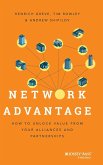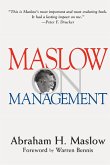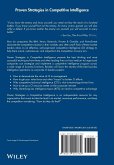This updated edition provides managers with a practical guide focused on the particular management needs for research and development in biotechnology and pharmaceutical industries. It offers a way to improve the quality of interactions and creativity output in R&D, with real life case studies to illustrate key points.
"Managing Scientists" offers strategies for fostering communication and colaboration among scientists. It shows how to build cohesive, productive, and focused teams to succeed in the competive research and development marketplace. This book will help any manager to: Build focused teams while promoting individual achievement. Increase productivity, creativity, and innovating thinking. Communicate effectively with the group and the organization at large. Address the "human" side of scientists and science. The book contains case histories, offers valuable insight into organization culture, and is written in a cleear, readable style. In effectively balances theory with real-world examples to provide a stimulating and practical guide to managing researchers for the scientists and nonscientist alike.
"Managing Scientists" offers strategies for fostering communication and colaboration among scientists. It shows how to build cohesive, productive, and focused teams to succeed in the competive research and development marketplace. This book will help any manager to: Build focused teams while promoting individual achievement. Increase productivity, creativity, and innovating thinking. Communicate effectively with the group and the organization at large. Address the "human" side of scientists and science. The book contains case histories, offers valuable insight into organization culture, and is written in a cleear, readable style. In effectively balances theory with real-world examples to provide a stimulating and practical guide to managing researchers for the scientists and nonscientist alike.
"This book discusses the difference between managing and leading, and why it is important to understand the distinction." (Vet Human Toxicology, 46 (4) August 2004)
"Managing Scientists is a useful lesson for new leaders with limited training or experience." (Black Enterprise Magazine, July 2005)
"...for any scientist who aspires to be a better leader or manager, of either projects or people or both, this book should be a very useful exploration." (Journal of Natural Products, February 2005)
"...a good addition to libraries serving laboratories or other scientific organizations. There is enough new material to justify purchasing the new edition where the first may be on the shelf." (E-STREAMS, January 2005)
"As the career paths of many scientists proceed through the laboratory to leadership and administration positions...this book will provide beneficial insights to these scientists as they progress through the ranks." (Journal of Medicinal Chemistry, October 7, 2004)
"This book discusses the difference between managing and leading, and why it is important to understand the distinction." (Vet Human Toxicology,46 (4) August 2004)
"...for any scientist who aspires to be a better leader or manager, of either projects or people or both, this book should be a very useful exploration." (Journal of Natural Products, February 2005)
"...a good addition to libraries serving laboratories or other scientific organizations. There is enough new material to justify purchasing the new edition where the first may be on the shelf." (E-STREAMS, January 2005)
"As the career paths of many scientists proceed through the laboratory to leadership and administration positions...this book will provide beneficial insights to these scientists as they progress through the ranks." (Journal of Medicinal Chemistry, October 7, 2004)
"This book discusses the difference between managing and leading, and why it is important to understand the distinction." (Vet Human Toxicology,46 (4) August 2004)








